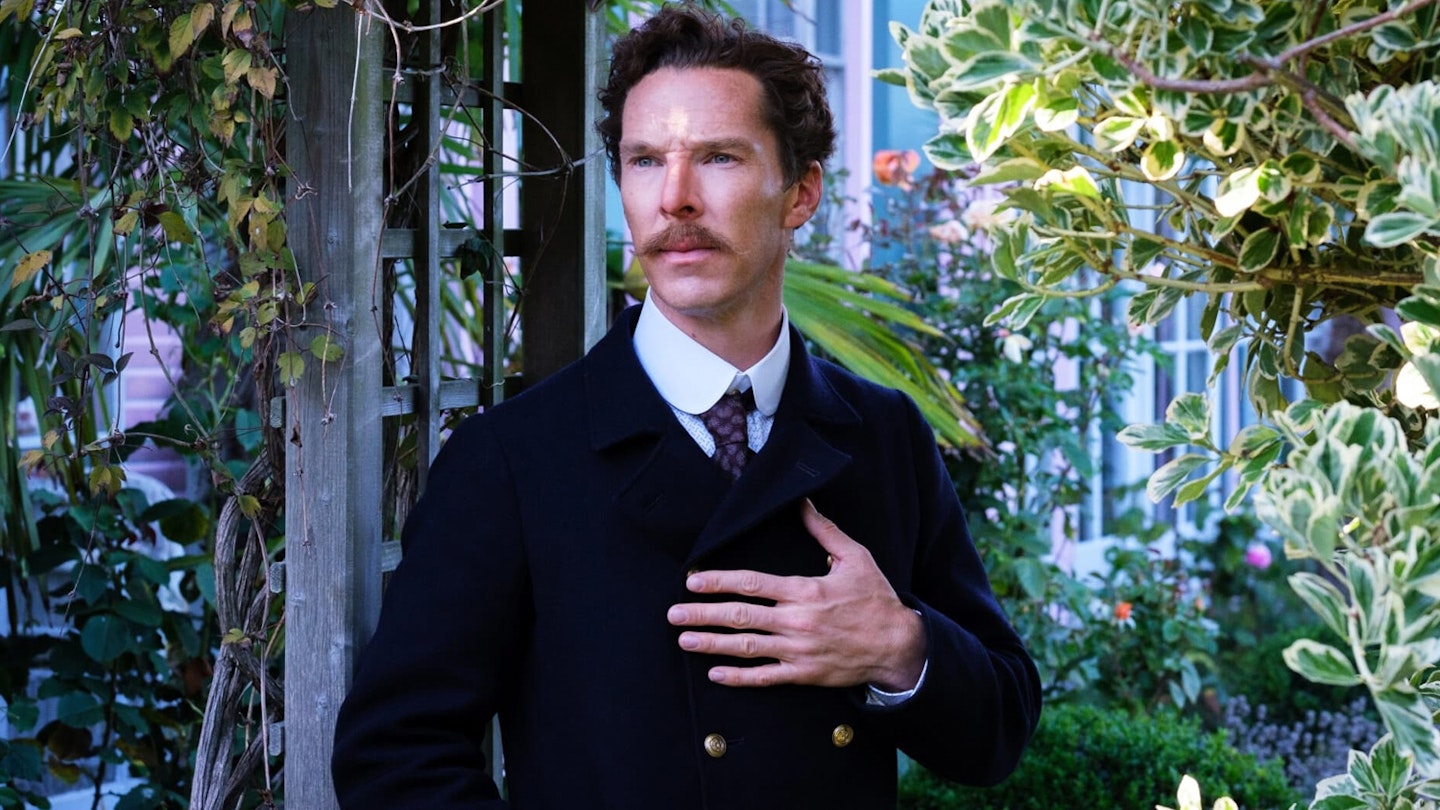When it comes to portraying troubled geniuses on screen, Benedict Cumberbatch has often been the go-to guy. From the fictional characters (Sherlock Holmes) to true-life figures (Alan Turing, Thomas Edison), he has repeatedly excelled at humanising iconic figures. In director Will Sharpe’s The Electrical Life Of Louis Wain, it’s a trick he pulls off again, as the titular polymath who became famous for surreal cat paintings that shifted the perception of felines forever. But while the central performance is spectacular, this biopic isn't as illuminating as it could and should be.

For the first hour, it doesn’t feel like things will turn out that way. Olivia Colman’s recurring narration initially frames Wain as a “failed art teacher, failed musician, aspiring inventor, enthusiastic poly-hobbyist and of course part-time illustrator” who is the sole provider for his five sisters. His most outspoken sibling, Caroline (Andrea Riseborough), is none too pleased when he strikes up a romance with governess Emily Richardson (Claire Foy); back then it was scandalous for a ‘gentleman’ to be in a relationship with someone from the servile class.
Where the first hour is steady and focused, the rest of _The Electrical Life…_ is rushed and sketchy.
This courtship and the eventual marriage of the couple is where The Electrical Life… is at its best. There is something sweet about Emily’s acceptance of Louis, awkwardness and all, and their energies complement each other beautifully. We need to feel the powerful love between them because it sets the stage for everything that follows in more ways than one — it’s here that Louis is introduced to the cat, Peter, that will spark his imagination and ultimately leave a lasting legacy on the world – and we do.
But where the first hour is steady and focused, the rest of The Electrical Life… is rushed and sketchy. Although the film is frequently beautiful to look at and listen to — Arthur Sharpe’s theremin-heavy score is especially delightful — we go through the next 25 years of Wain’s life at a fast clip, and the cradle-to-the-grave approach does the storytelling no favours. More troublingly, Sharpe and Simon Stephenson’s screenplay seems unsure of how to handle the mental illness that led to Wain’s steady decline; at times it’s handled with pathos, but more often than not it’s whimsical, and the switches between the two tones are jarring.
It would be much worse if the central performance was also all over the place, but Cumberbatch caps off the busiest and best year of his career with another impressive turn that finds new emotional beats as Wain ages through the years. Like all good biopics, it leaves you wanting to know more about its subject, and The Electrical Life…, while flawed, is a solid starting point.


